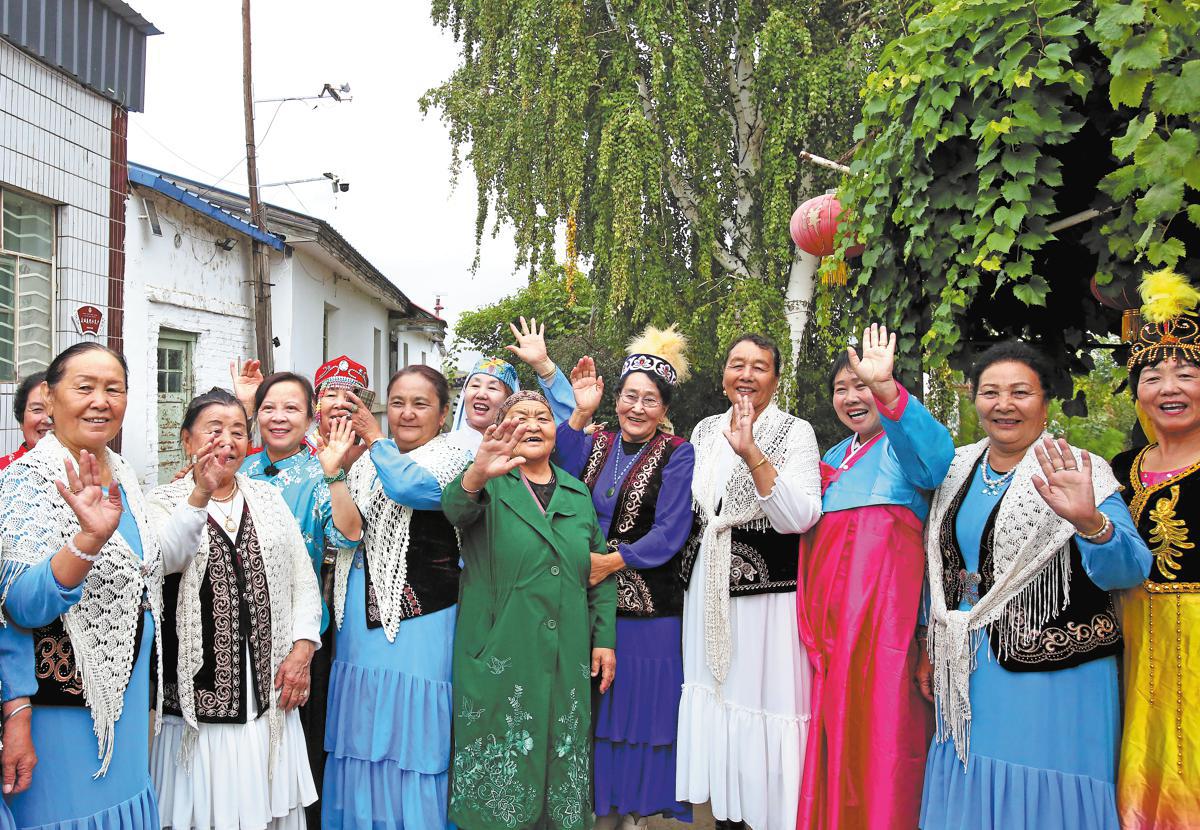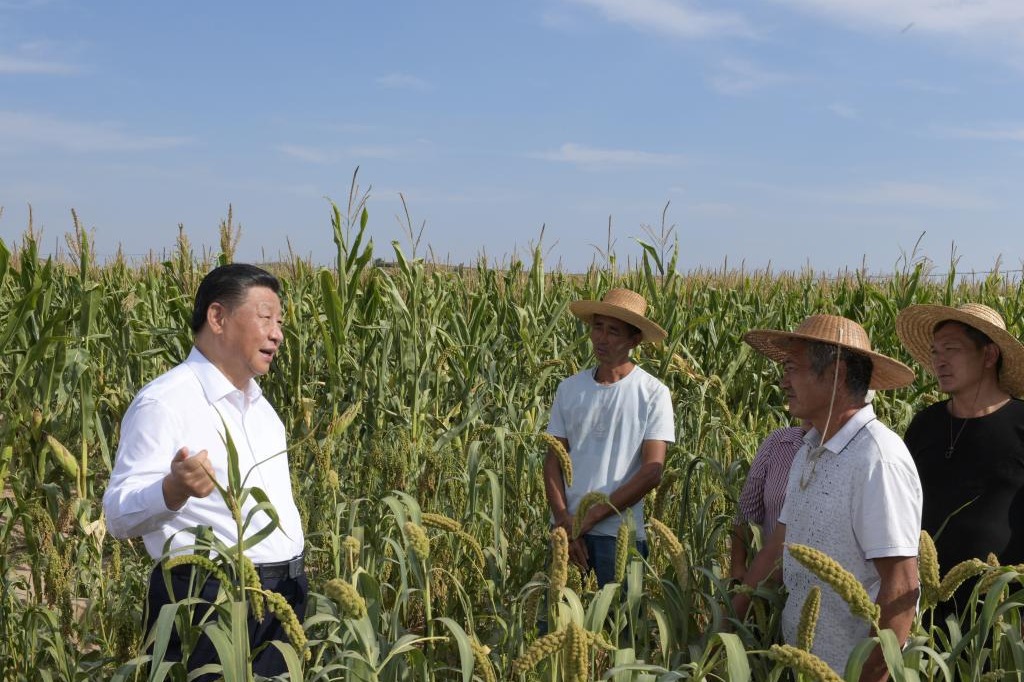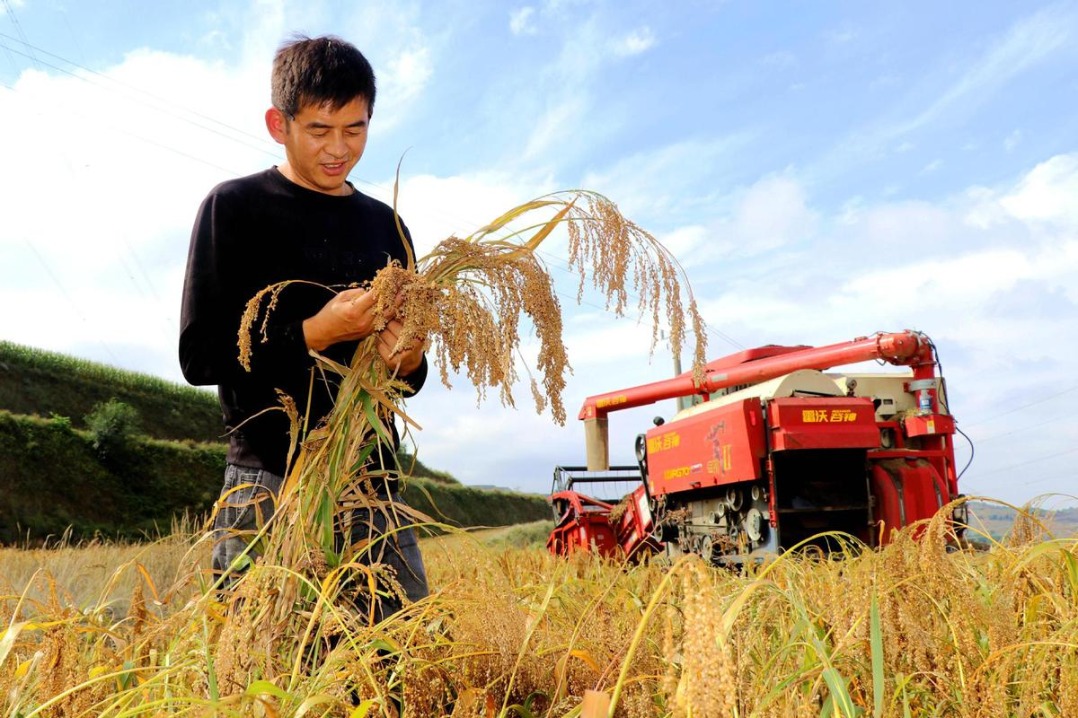Ethnic unity powering social progress, prosperity
Diversity, harmonious coexistence seen as crucial to region's future


Li Limin greeted Azgul Abula with a peck on the cheek when the two women bumped into each other on a sunny afternoon in a residential community garden in Urumqi.
The intimate exchange, at Guyuanxiang community in the capital of the Xinjiang Uygur autonomous region, is a Uygur ethnic group custom when close female friends meet.
"Although I am from the Hui ethnic group, it has become a subconscious thing to do after living for over 40 years in a neighborhood where people from ethnic minority groups account for more than 95 percent of the residents," Li said.
The residents know and respect the traditions of people from different ethnic groups including Han, Hui, Uygur, Kazak and Tatar. At the same time, they care for each other like members of one big family, 70-year-old Li said.
Forging ethnic unity may seem like a big challenge, but in Xinjiang — which has been a multiethnic region since ancient times — it starts with little things such as a peck on the cheek, lending a helping hand when someone is in need, or celebrating festivals together.
"Such actions are never deliberate, but something happens every day and comes naturally from people's hearts," Azgul, 49, said. "A simple greeting like that means a lot."
























